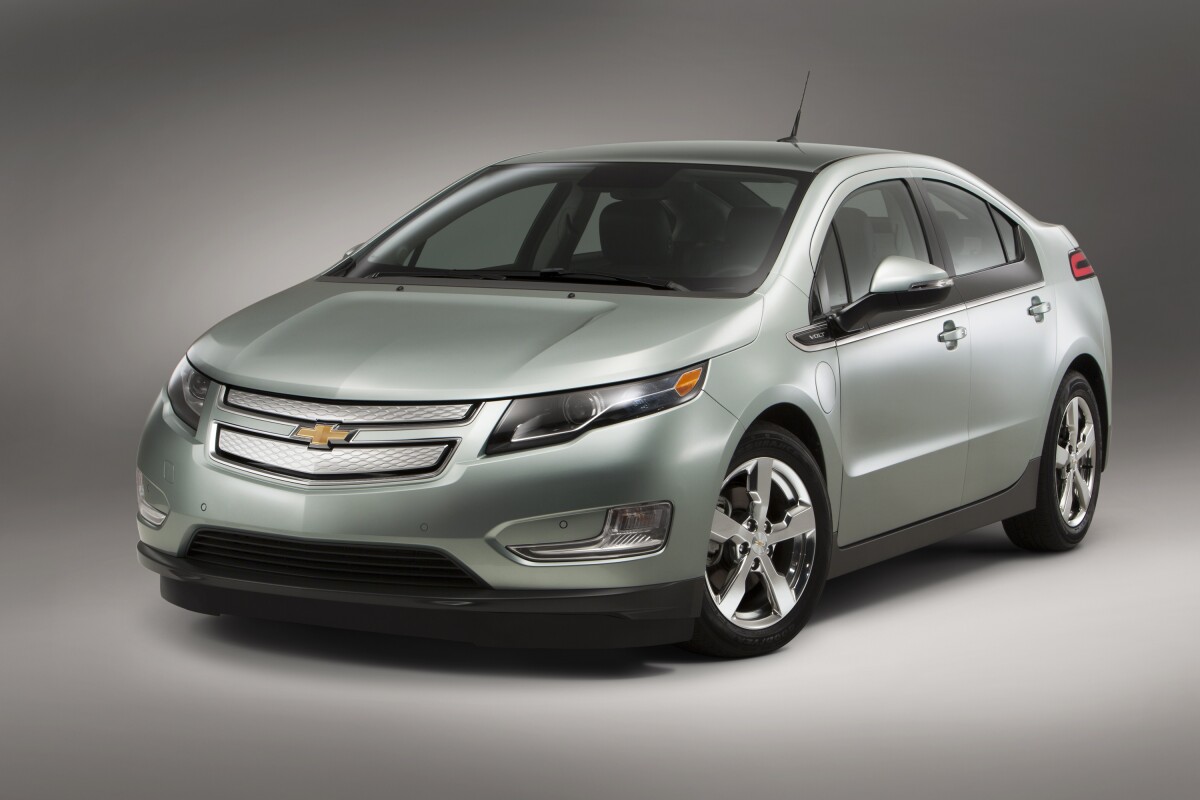GM announced this week that the 2013 Chevy Volt, which will go on sale in August, will get a boost in electric range and efficiency. The automaker has tinkered with the formula of its lithium-ion battery to provide a few extra miles.
Plug-in vehicle manufacturers must have all kinds of trepidation when it comes time for the official US Environmental Protection Agency rating. The EPA has a way of messing up marketing materials big time. In the case of Fisker, the official EPA rating cut the Fisker Karma's claimed 50 miles (80.5 km) of all-electric range down to 32 (51.5 km). Combined with the low, SUV-like 20 mpg (11.8 L/100km) the EPA stickered in for gas-only mileage, it was quite a blow to the Karma's image.
In GM's case, it wasn't quite as bad, but there was still a bit of fallout. In the months leading up to the Volt's December 2010 launch, GM was ever-eager to point to a study showing that 80 percent of Americans drive 40 miles (64 km) or less every day. That worked out pretty well because GM originally estimated the Volt's all-electric range at that very 40 miles, later revising it to between 25 to 50 miles (40 to 80.5 km). Essentially, assuming a 40-mile range, the Volt could serve as a full-blooded EV for the majority of Americans, almost lending credibility to GM's insistence on referring to the Volt, a series hybrid, as an electric vehicle.
Enter the EPA and a flat 35-mile (56-km) all-electric range rating. That may have been smack in the middle of GM's range, but it sure took the the effectiveness out of the whole "40 miles a day" claim. Five mpgs may not be a huge difference, but it kind of fudges the averages - it would seem there wasn't a study for what percentage of Americans drive 35 miles or less every day.
GM is slowly inching its way toward that 40-mile rating. The automaker announced yesterday that the 2013 Volt will travel 38 all-electric miles (61 km) on a single charge. After the first 38 electric miles, the Volt's range-extending gas engine kicks in to deliver an additional 340 miles (547 km) or so. The new model will also improve its electric fuel economy rating, leaping from 94 mpg-e to 98 mpg-e (2.4 L/100km equivalent).
GM says that it's made changes to the size and composition of the Volt's battery based upon the driving experiences of Volt owners. The battery is now 16.5 kWh instead of 16 kWh. GM has also changed the chemical composition of the battery.
While it doesn't go into specifics on its chemistry, Bill Wallace, GM director of Global Battery Systems Engineering, explains (for a five-year-old audience?): "The best way to explain what we’ve done at the cell level is to compare it to a cake batter recipe. Sometimes if you use more sugar and less vanilla you get a better tasting cake. We’ve done some work at the cell level to modify the ‘ingredients’ to make a better end result."

As you might expect, the slight size boost also means a slight increase in charging time. The new Volt battery will take 10.5 hours to charge when using a 120-volt outlet and 4.25 hours to charge when using the optional 240-volt charger (up from 10 hours and 4 hours, respectively).
In what could be viewed as good or bad news, Chevy told the media in a conference call that the Volt's price will remain the same (US$39,995) when moving from the 2012 to 2013 model year. Automakers often increase the price for a new model year, especially when adding equipment (or range), but some consumers might have been hoping for another price decrease. The 2012 Volt dropped about $1,000 in price from the original 2011 model - no such luck this time around.
The 2013 Volt will go on sale beginning in August.
Source: GM, Inside Line






